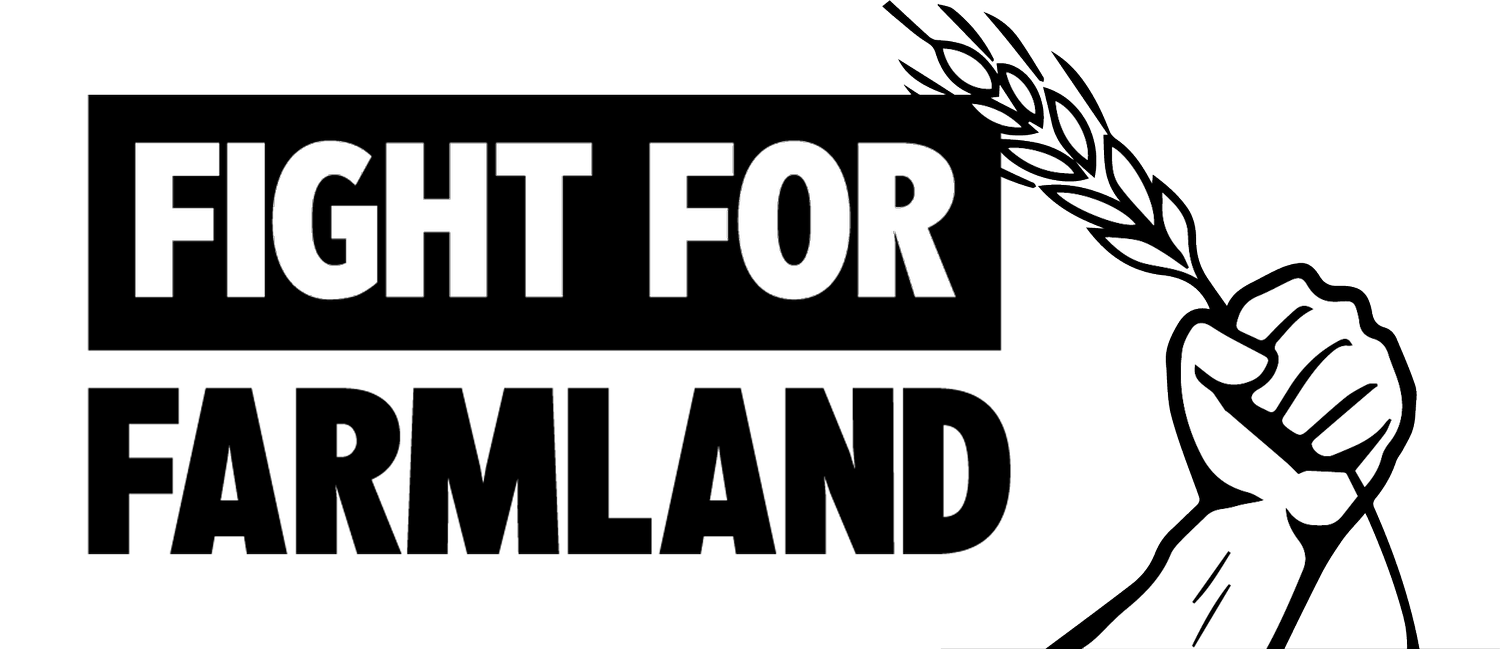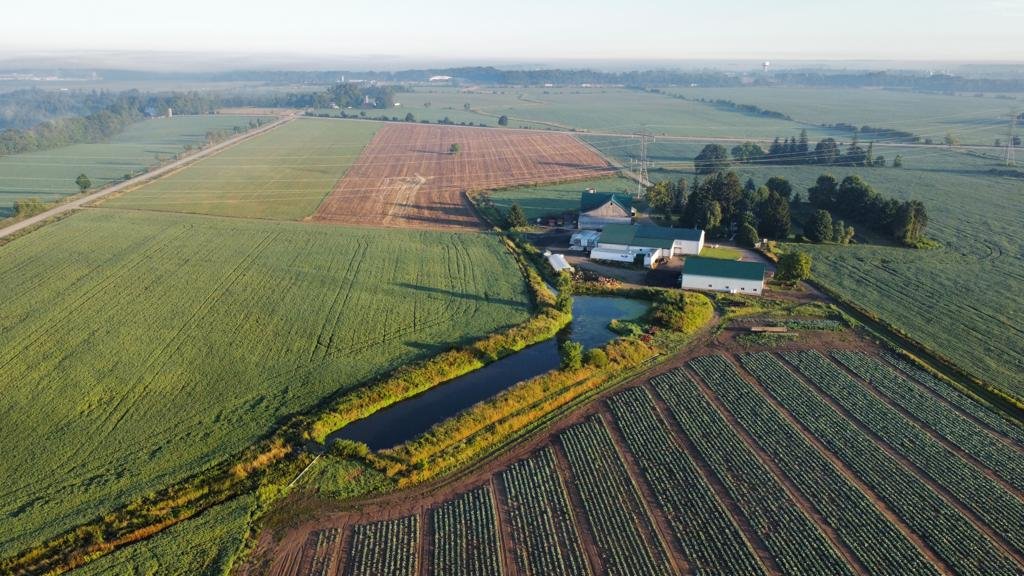LET’S STOP THE INDUSTRIAL DEVELOPMENT OF 700+ ACRES OF PRIME AGRICULTURE LAND.
The Region of Waterloo is seeking to acquire approximately 770 acres of land situated northeast of the intersection of Nafziger and Bleams roads in Wilmot Township. This prime agricultural land, currently zoned for agricultural use, is slated for expropriation by the Government of Ontario to be rezoned for industrial purposes. Canada's landmass offers just 6% of suitable land for farming, with a mere 4% designated for crop cultivation after factoring in grazing land. Remarkably, the most fertile portion of this 4% lies within Wilmot Township. This invaluable and scarce resource, essential for sustaining life, must not be sacrificed to development and paving.
Agriculture stands as the Waterloo Region's leading industry, surpassing universities, tech, and manufacturing sectors in employment and revenue generation. However, its vitality is under direct threat. The proposed "shovel-ready site" threatens to disrupt the very fabric of our agricultural community. Spanning 8.5km in circumference, its conversion into a factory with 3,000 workers would unleash gridlock traffic stretching up to 20km in every direction. Just for perspective walking the circumference of the site would be like walking from Kitchener City Hall all the way to St. Jacobs Farmers Market. On top of the chaos, there are threats to the environment and the water.Currently, there are no existing water or sewage lines connected to the land, and substantial upgrades are required for the sewage treatment plant to accommodate a significant new development in the area delineated by Bleams, Nafziger, the highway, and Wilmot Town Centre. The influx of workers commuting to and from the proposed factory will significantly congest roads, exacerbating traffic issues and contributing to increased greenhouse gas emissions, thus exacerbating the climate crisis. Particular attention must be paid to safeguarding the well-head protection zones surrounding the site, as these areas draw from underground aquifers crucial for the region's water supply.
ABOUT THE LAND - THE RISKS
ONTARIO FEDERATION OF AGRICULTURE - THE INDUSTRY AT A GLACE:
WHY HERE? QUESTIONS WE DEMAND ANSWERS TO:
Why is this industrial site being built on prime farmland rather than reclaimed aggregate sites, grey field, brownfield, or other already compromised locations that already abound in the Region and Township?
Why is the site being located outside of settlement boundaries and so far from our Regions major cities which will make our roadways even busier?
Why has there been no public engagement or even discussion about this particular location in all the extensive long-term planning the Region has undertaken?
All remaining capacity at the New Hamburg/Baden sewage plant has already been allocated for residential growth and additional expansion will be extremely expensive if even possible because the Nith River watershed is already at its capacity?
Why has the GRCA not had any input in this planning?
Has anyone thought of the lack of significant highway/transportation access (except for Highway 7/8), or a rail line that is already heavily congested with passenger rail traffic? There is little possibility of public transit in this area forcing thousands of long automobile trips daily?
What about water availability for these lands and if it would trigger the need for a pipeline to Lake Erie. One needs to remember that much of our Region’s groundwater comes from Wilmot township and water quality is already suffering?
WELL-HEAD PROTECTION AREA THAT PROVIDES DRINKING WATER TO THE REGION AT RISK.
The Waterloo Region continues to rely on underground aquifers for 80% of the region’s water. This area is not only a major supply of drinking water for the Waterloo Region, but has two creeks that flow into the Nith River.
The Industrial development of this land can have severe repercussions on groundwater and water resources including:
Surface Water Contamination: Industrial pollutants not only affect groundwater but also infiltrate surface water bodies like rivers and lakes, further polluting groundwater.
Excessive Water Consumption: Industrial operations often require large volumes of water for various purposes, leading to groundwater depletion and harming aquatic ecosystems dependent on groundwater discharge.
Groundwater Depletion: Industrial activities, including water extraction for manufacturing, contribute to groundwater depletion. Excessive pumping can cause land sinking and irreversible damage to aquifers.
The affected area boasts fertile topsoil and an optimal climate conducive to agriculture. Within its bounds, numerous individual organic gardens flourish, alongside enterprises such as St. Jacobs Food Inc., specializing in cabbage cultivation, and Mountain Oak Cheese and Westside Farms, dedicated to growing crops to sustain their dairy herds. Such arable land is a rarity, especially considering that other areas nearby predominantly feature gravel or sand, rendering them less favorable for agricultural productivity.






